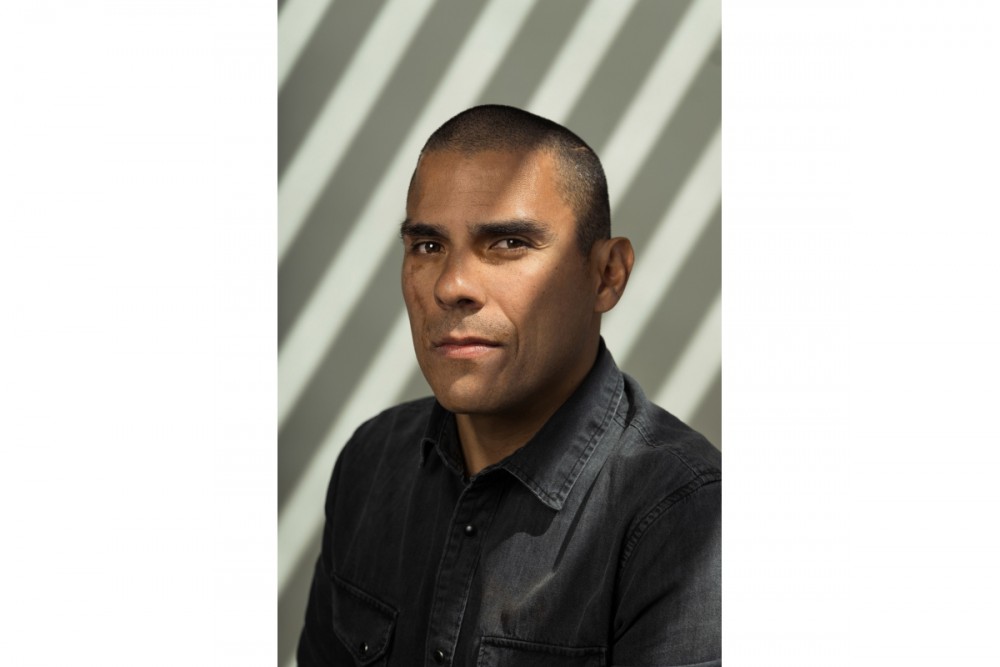Venezuelan filmmaker to present work at GVSU

GVL / Courtesy – Gustavo Rondon Cordova
Apr 2, 2018
Gustavo Rondón Córdova is a filmmaker from Venezuela whose films “La Familia” and “El Amparo” will be featured in the Grand Rapids Latin American Film Festival on Saturday, April 7. On Thursday, April 5, Rondón Córdova will be visiting a Grand Valley State University classroom to present his work and share his experience as a filmmaker. During his presentation, Rondón Córdova will show clips of his films while sharing the progression of editing a scene or two.
Toni Perrine, professor of film studies at GVSU, was one of the faculty members to organize Rondón Córdova’s visit to campus.
“It’s a great opportunity for students to hear the perspective of someone from a different culture,” Perrine said. “We’ve done this in the past in conjunction with the (Grand Rapids Latin American Film) festival, and it’s been really successful because students really do want to hear about other people’s experiences who have similar aspirations but come from a very different cultural context.”
Rondón Córdova has a degree in communication and film, and has written, directed and produced several short films that have garnered international acclaim. His film “La Familia” had its world premiere in the Cannes Critics’ Week competition in 2017 and has been selected for more than 35 film festivals throughout the world.
Rondón Córdova is motivated to tell stories in his films, but he shared that editing and directing is what most interests him about filmmaking. His thought process is audiovisual, and he is always returning to the images and sounds he’d like to incorporate.
“I love stories told through audiovisual media; I enjoy so much getting into new stories, places, characters, conflicts (through) images and sounds,” Rondón Córdova said via email. “I write to tell the stories I want to tell (on) a screen, but it’s not my natural craft. I do it, but I am always thinking in the images and sounds and the cuts.
“For me, editing is the place where everything makes sense, where a film really becomes a film. The three processes are kind of painful. To be honest, I see filmmaking as an expression where you must leave your skin, your soul and your thinking on the screen.”
The father and son in “La Familia” are relatively silent throughout the film. Rondón Córdova said he likes stories that rely more on the imagery to tell the story and that in some cases, images can express much more than words can.
“In the kind of stories that I like, words are not the main vehicle to ideas and feelings,” Rondón Córdova said. “Behavior and the relations that grow from what is not said are very powerful for me. It comes also from the fear of the vulnerability that an actor-actress and directors are exposed, (especially) in their first works, when they have to deal with long dialogues.”
“La Familia” and “El Amparo” have violent scenes. In “La Familia,” Pedro stabs someone, and in “El Amparo,” a shooting takes place that kills 14 people. Rondón Córdova said his reason for incorporating this violence into his films is that he sees violence around him in many different ways, and for him as an artist, there is a message behind the violence for his viewers.
“In the case of ‘La Familia,’ that is the film I directed, I want the audience to take home that maybe all the violence that surrounds us starts from our own homes, our closest spaces and from the closest relationships,” Rondón Córdova said. “This film is an exploration of that possibility, not a conclusion.
“My intention is to provoke some thinking instead of telling something definitive.”
Currently, Rondón Córdova is writing a new script and is the producer of two other films.
“El Amparo” will be shown at 5 p.m., and “La Familia”—listed as “The Family” in the film festival—will be shown at 8 p.m., both in the Wealthy Street Theatre in Grand Rapids.

























